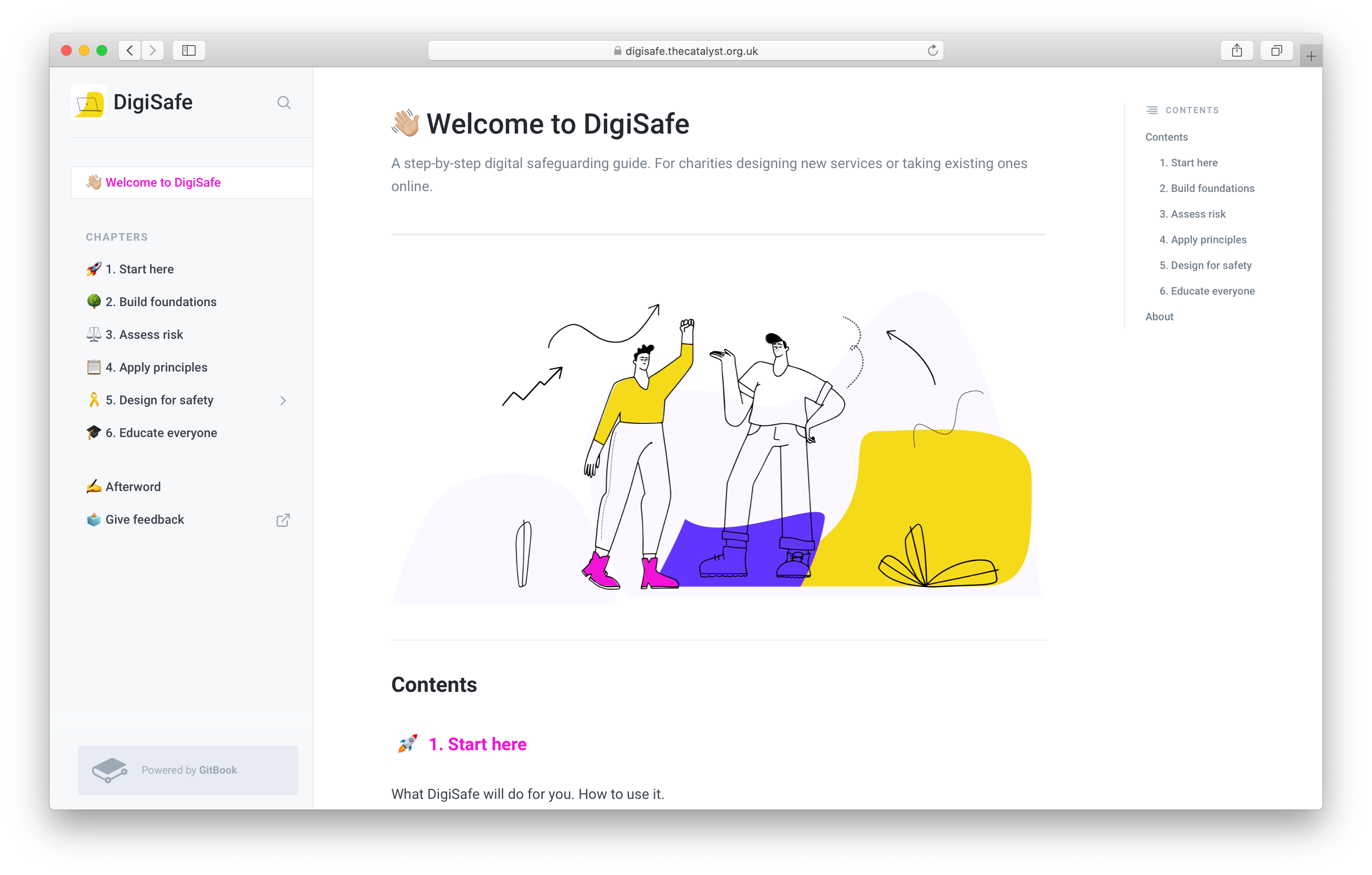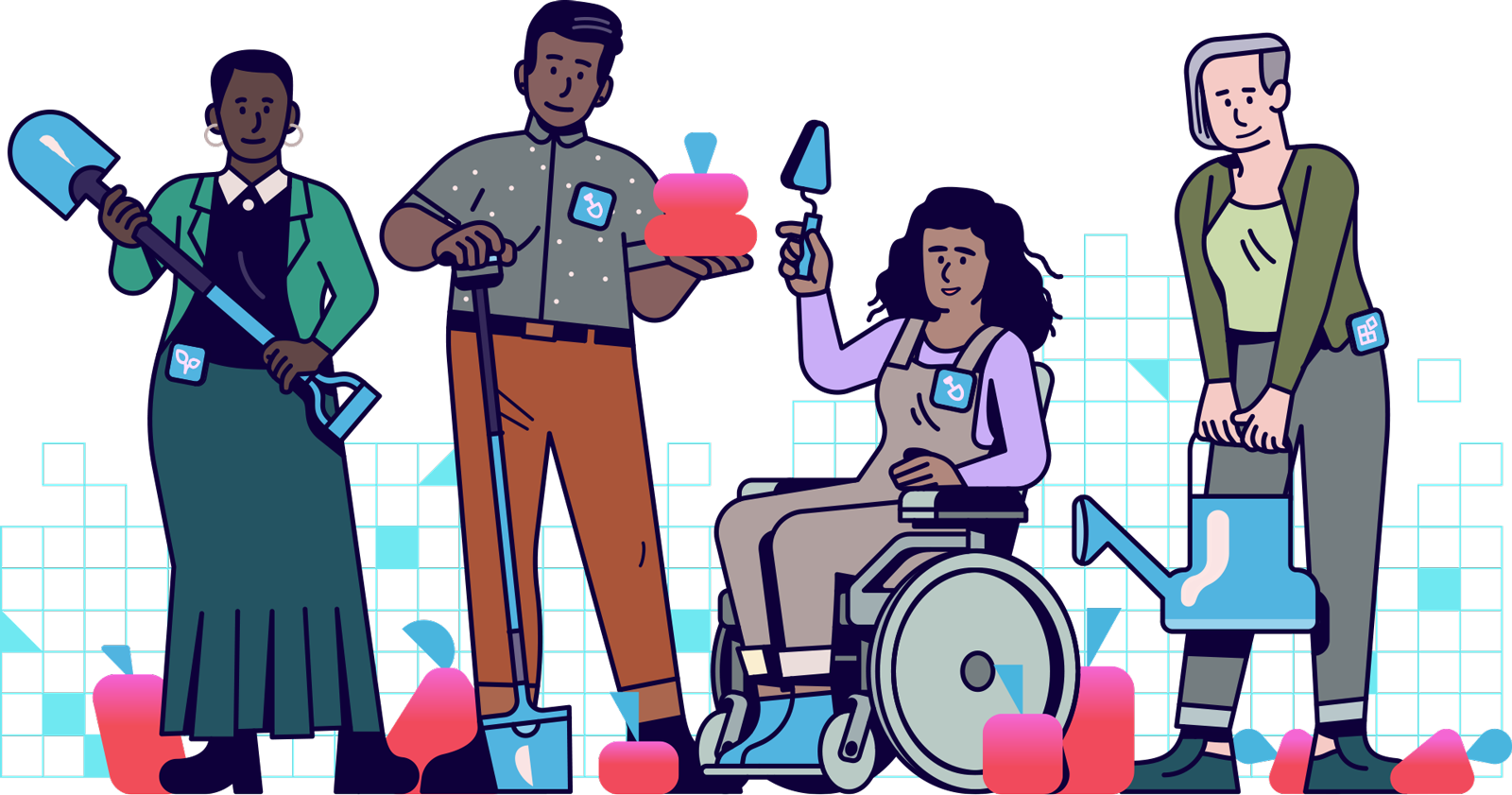
Digisafe is the best practice guide for charities designing new digital services or taking existing ones online. Funded by The Clothworkers' Foundation.
Since April 2020 charities across the UK have been rushing to migrate their face-to-face services online. They've applied their safeguarding knowledge to a new context with enthusiasm and commitment. But best practice guidance has been dispersed and sometimes hard to find. Until now.
Launched today, DigiSafe is a step-by-step digital safeguarding guide. It's written for charities designing new digital services or taking existing ones online.
“A guide that helps charities continue to deliver safe and effective services while breaking new ground in both content and style.” - Charné Tromp, DigiSafe Lead at CAST.
For assessing risk
DigiSafe’s backbone is a risk assessment process. Charities can use this before, during and after taking their services online. It advocates an iterative approach to risk management. This means using your risk register as a dashboard to guide how you design your service.
For designing new or existing services
If you’re moving your services online, DigiSafe will help you:
- learn the principles of digital safeguarding
- think about how to apply them in specific service scenarios e.g. video, online groups etc
If you’ve already taken your services online, DigiSafe will help you track risks and review your progress.
For training staff to recognise safeguarding issues when delivering online
Recognising risk and spotting abuse when delivering online can be different. So DigiSafe explains how to identify both offline and online abuse when delivering this way.
Design-first approach
It also takes a design-first approach. It helps charities to build safeguarding and risk assessment into each stage of their digital journey. It works for charities taking services online for the first time who may be working out how to write a digital safeguarding policy. And it works for those who are already risk assessing, designing and delivering services online.
GitBook format
DigiSafe is written in GitBook, an online publishing platform. Easier to navigate than a PDF, it also enables users to feed back on their experience. Because it is easy to update it avoids the pitfalls of PDFs that become out of date.
Written by four organisations
DigiSafe is a Catalyst resource. This means it was written and designed by a network of organisations working to the Catalyst charter. In this case the people involved were:
- Charné Tromp of CAST, a UK charity accelerating use of technology across the social sector.
- Cordelia Ruck and Jo Sharpen of AVA, a UK charity committed to ending gender based violence and abuse.
- Joe Roberson of Working with Joe, a content design agency for the social sector.
- Noam Sohachevsky of SIDE Labs, a user-research and no-code design agency for the social sector.
Funded by The Clothworkers' Foundation
"Our grantees have asked for DigiSafe. So we're really pleased to have funded it. We'd encourage all charities to use it to make their online services safe and effective." - Philip Howard, Head of Grants at The Clothworkers’ Foundation.
Use DigiSafe now
DigiSafe is ready to use at www.digisafe.thecatalyst.org.uk

Support & services
Our free services help you make the right decisions and find the right support to make digital happen.
Learn what other non-profits are doing
39+ organisations share 50+ Guides to how they use digital tools to run their services. Visit Shared Digital Guides.



